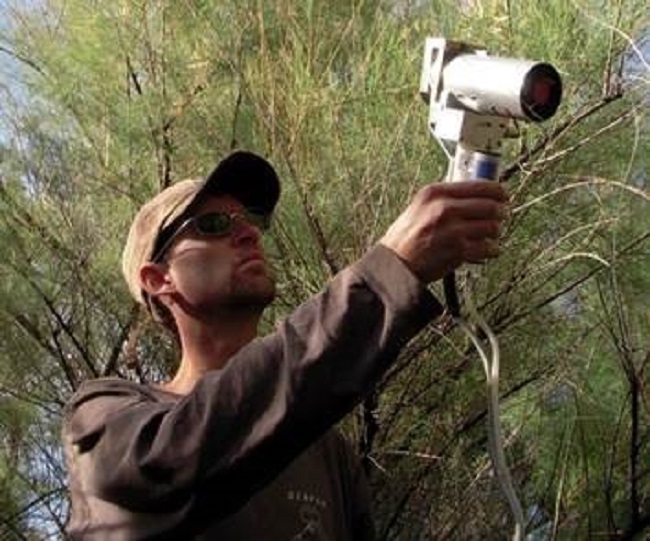PS Seminar: The genetics of survival: will local adaptation save or peril the foundation tree species, Populus fremontii from the effects of global environmental change?
Speakers
Event series
Content navigation
Description

Fremont cottonwood (Populus fremontii) gallery forests support large numbers of dependent communities and ecosystem processes, but are among the most threatened forest types in North America. Cottonwoods also harbor considerable genetic variation over their extremely broad geographical range, resulting in populations that are locally adapted to climate and other environmental characteristics. However, with rapid global environmental change (e.g. climate change, anthropogenic land use, non-native species), many locally-adapted populations may soon become locally maladapted. We therefore anticipate that there will be strong selection for genotypes that best optimize leaf energy, carbon and water balances during episodic heat waves and reductions in soil water availability. Results from a combination of common-garden and glass house experiments reveal that, unlike cottonwood genotypes from other locations, genotypes occurring on the hot edge of its geographic range express a suite of hydraulic and leaf structural traits that maximize canopy thermal regulation, thereby improving leaf carbon balance during extreme heat events. These traits include: higher midday stomatal conductance (resulting in improved leaf evaporative cooling), higher tolerance for internal water potential gradients, smaller and thinner leaves, lower leaf area to sapwood area ratios, and greater rooting depths. Identifying genotypes that are best adapted to both current and future environmental conditions will greatly improve cottonwood forest restoration efforts in riparian ecosystems impacted by altered hydrological regimes and the effects of climate change.
Kevin Hultine has been a Research Ecologist with the Department of Research, Conservation and Collections at the Desert Botanical Garden in Phoenix, AZ since 2011. He also holds adjunct faculty appointments in the School of Life Sciences at Arizona State University and the School of Earth Sciences and Environmental Sustainability at Northern Arizona University. He holds a BS in Forest Resources from the University of Idaho (1997), a MS in Renewable Resources from the University of Arizona (2001), a PhD in Renewable Resources from the University of Arizona (2004), and worked as an Assistant Research Professor in the Department of Biology at the University of Utah from 2004 to 2010. Hultine has over 20 years of experience in stable isotope ecology, plant water relations, desert plant ecology, ecohydrology and plant ecophysiology. He is also currently serving as Plant Science Editor for the Oxford University Press journal Conservation Physiology.
Location
Eucalyptus Seminar Room, S205, Level 2, RN Robertson Building (46)




